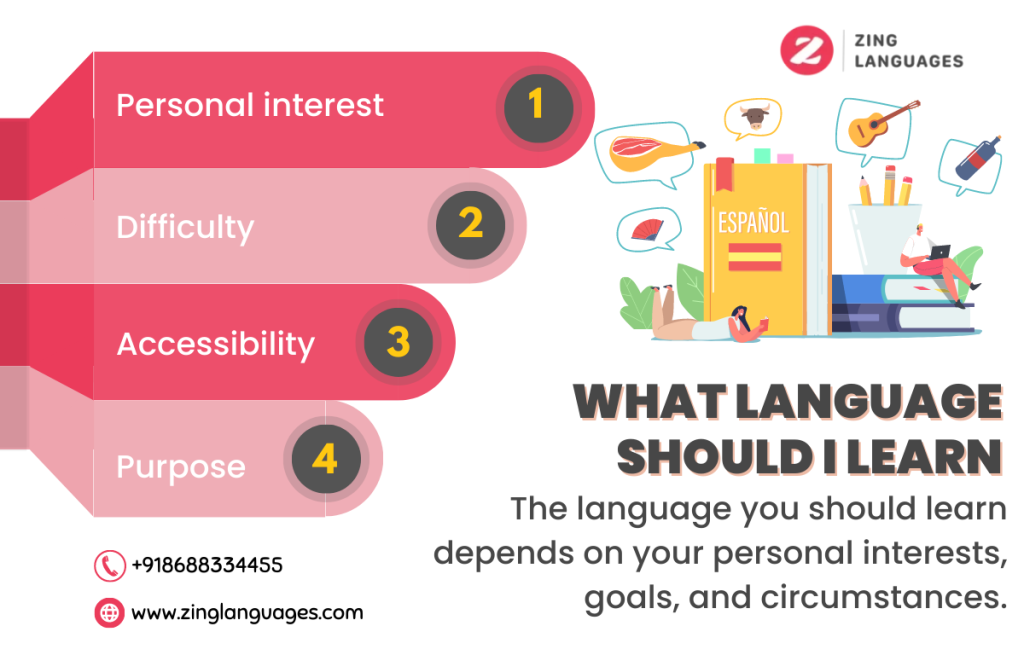Learning a new language is an exciting and challenging endeavor. It can open up new opportunities for personal growth, travel, and career advancement. But with so many languages, what language should I learn? By considering your goals, you can narrow down the options and focus on the most relevant languages for your needs.
What Language Should I Learn

Personal vs. Professional Goals
The first step in considering your goals for what language should I learn is to determine whether you are learning for personal or professional reasons. Personal goals might include travel, family connections, or personal interests. Professional goals might include career advancement, job requirements, or business opportunities.
Personal Goals
What language should I learn you are thinking If your goal is to travel, consider learning the language of the country you plan to visit. This can help you communicate with locals, gain a deeper understanding of the culture, and make your travel experience more enjoyable. If you have family connections to a particular language or culture, learning that language can help you connect with your roots and better understand your family’s heritage. Personal interests such as music, literature, or film can also be a great motivators for learning a new language.
Professional Goals
If you’re thinking about What language should I learn for professional reasons, consider which languages will be most relevant to your career. This could include languages spoken in countries where your company does business, or languages in high demand in your industry. Learning a language could also help you stand out in a competitive job market or give you a unique skill set for career advancement.
Researching Language Options
Once you’ve determined your personal or professional goals, it’s time to research language options. Look for language courses, online resources, or language communities that can help you learn the language you need. When you are willing What language should I learn then Consider the availability of resources in your area, such as language classes or tutors, as well as online resources such as language learning apps or websites?
Factors to Consider
There are several other factors to consider when choosing a language to learn. Language difficulty is one of them; some languages are more challenging to learn than others, depending on factors such as grammar, pronunciation, and writing systems. Your personal learning style is also important; consider whether you prefer self-study or online language courses and whether you are a visual or auditory learner.
Conclusion
In conclusion, by considering your goals, you can choose What language should I learn by setting up yourself for success in language learning. Take the time to research language options, consider the online language courses available to you, and think about your personal learning style. By doing so, you can embark on an exciting journey of personal and professional growth, and connect with new cultures and people around the world.
Check out the Benefits of Thinking in a Foreign Language.


